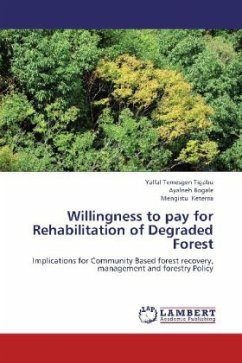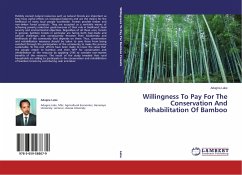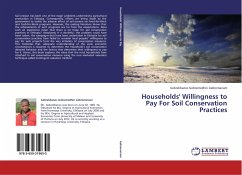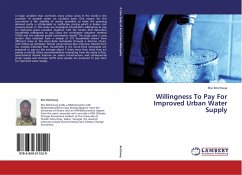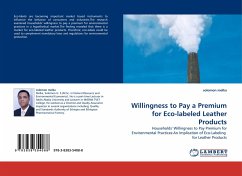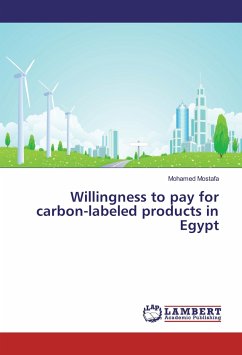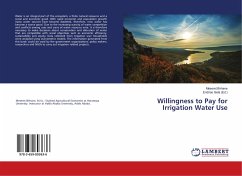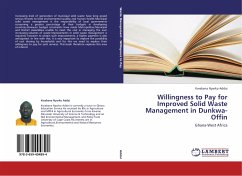Forest represents an important resource base for economic development. If managed wisely, forest had the capacity to provide a perpetual stream of income and subsistence products, while supporting other economic activities through its ecological services and functions. Despite the importance of forest in sustaining livelihood and poverty smoothening in rural communities, it is highly depleted. Besides, rehabilitation initiatives in Ethiopia to date are rarely participatory. Even, community forests are poorly conserved and highly degraded. Therefore, to enhance participatory rehabilitation initiatives for sustainable management, this study examined households willingness to pay for rehabilitation of degraded forest resources in a hypothetical market. The study was conducted in Sekella woreda of the Amhara region, northwestern Ethiopia. A total of 120 households had been surveyed in the study area in November and December 2011. During the survey, Contingent Valuation Method with double bounded dichotomous choice with follow up question format was applied to elicit willingness to pay of rehabilitation of degraded forest resources.
Bitte wählen Sie Ihr Anliegen aus.
Rechnungen
Retourenschein anfordern
Bestellstatus
Storno

